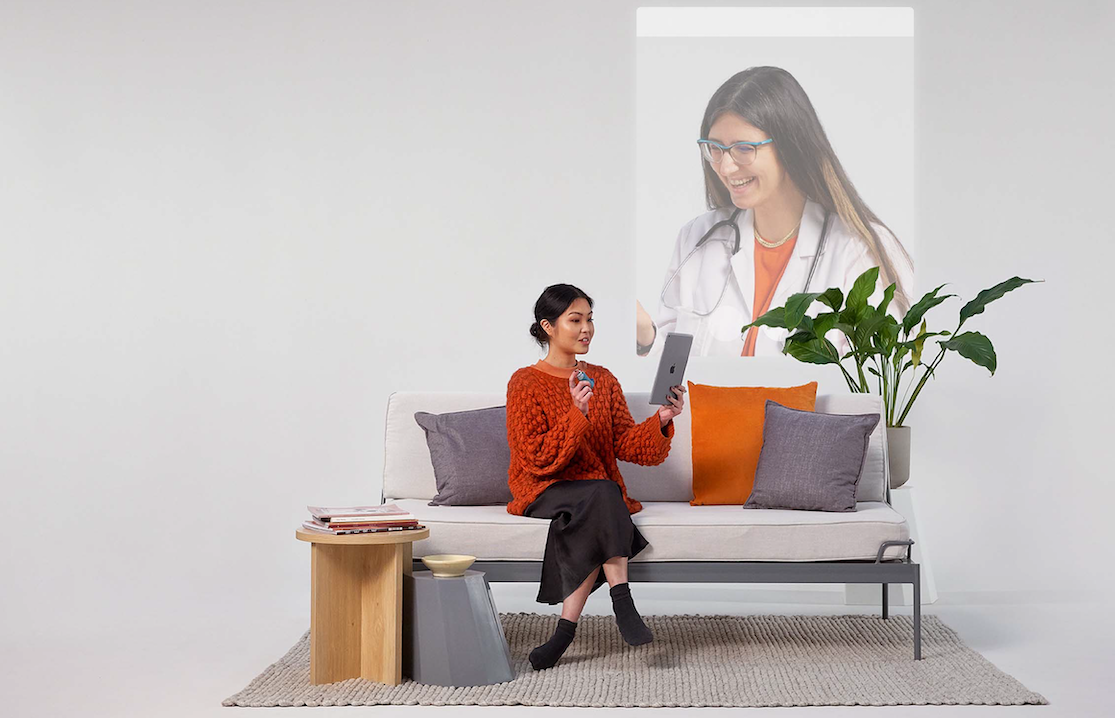Despite its necessity, receiving any healthcare or treatment is not something we look forward to. Each of us should have the right to timely and effective treatment, so why, even today, are we still so far from that? A lack of transparency, increasing costs and fragmented health systems with complicated processes are just some of the reasons behind healthcare’s consumer experience crisis. Research indicates that 70% of consumers find the healthcare system difficult to navigate, and 39% lack support when it comes to understanding their healthcare1.
This shouldn’t come as a surprise – typically, patients must go through several stages before they can access healthcare services. An initial appointment will be followed by tests and reports, and after that, a referral, and so on. Each step can take a significant amount of time. Patients may also struggle to find the right health information or find that they aren’t receiving the best advice and support, which can lead to spending more time and money when seeking further appointments and investigations.
Instead of scheduling more appointments and dragging the process out, how can we leverage technology to improve health care navigation in order to meet patients’ needs? Let’s look at a fictional example of a situation where a digital front door can enhance the patient experience.
With a digital front door, David has simpler access to what can be an overwhelming and complicated health system.
For a long time, David avoided doctors and clinics, except when he needed a repeat prescription for his anxiety medication. With an anxiety disorder and frequent episodes of depression, David, now 35, has had trouble holding down a job for the past few years and sometimes struggles to leave the house. David needs an easily accessible resource where he can get trusted information and the best professional advice in a place convenient to him, which is often at home.
Recently, when he was feeling particularly anxious, David decided he needed some support. After googling some of his symptoms he came across his local health system’s digital front door. Having reviewed some of its services, he decided to sign up for a free account. After logging in, David selected the live chat option and, after answering a series of security questions, is connected with a nurse who has access to his medical history.
Following a discussion with David and a review of some medical clinics and mental health services, the nurse refers David to a highly rated psychiatrist and arranges for the next online consultation. The nurse emails David a list of support groups available in his area if he needs extra help – all available to him via the digital front door where it’s easy for David to connect with others in similar situations.
During the virtual consultation, David is informed by the psychiatrist that he has access to his record, which David appreciates because it means he does not need to repeat his experiences the previous day. As a result, the psychiatrist can spend less time asking him about his past health history and more time listening to him to develop a plan.
As part of his new treatment plan, David will try a new medication and can choose to have his prescriptions delivered to his home so that he doesn’t have to wait in line at a pharmacy. The digital front door can notify David when the order is on its way to him and when it’s time to request a repeat prescription. He appreciates that these options are available to him as they make the entire process less daunting.
Access to a digital front door has been a game-changer for David. He feels confident knowing he can find trusted information or speak to a professional in a matter of minutes – all from the comfort of his home.
Orion Health’s Virtuoso digital front door redefines the healthcare experience for consumers
The digital transformation of healthcare is improving patients’ and providers’ experiences along the entire health continuum. Orion Health’s digital front door enables organisations to bring new and existing patient engagement technologies together into a unified, user-friendly hub so that people can access everything they need, at a time and place that suits them.
By implementing a digital front door, we can address our fragmented and hard to navigate health system by providing an easy to use interface for all interactions; such as symptom assessment, trusted health information, electronic referrals, access to complete medical records, virtual care and remote monitoring.
Read more about Digital health’s next big transformation: The shift to healthcare, anywhere in our whitepaper.
- The poor health of America’s healthcare system. Maestro Health. (2020, September 23). Retrieved April 12, 2022, from https://www.maestrohealth.com/resource/poor-healthcare-system-whitepaper/



